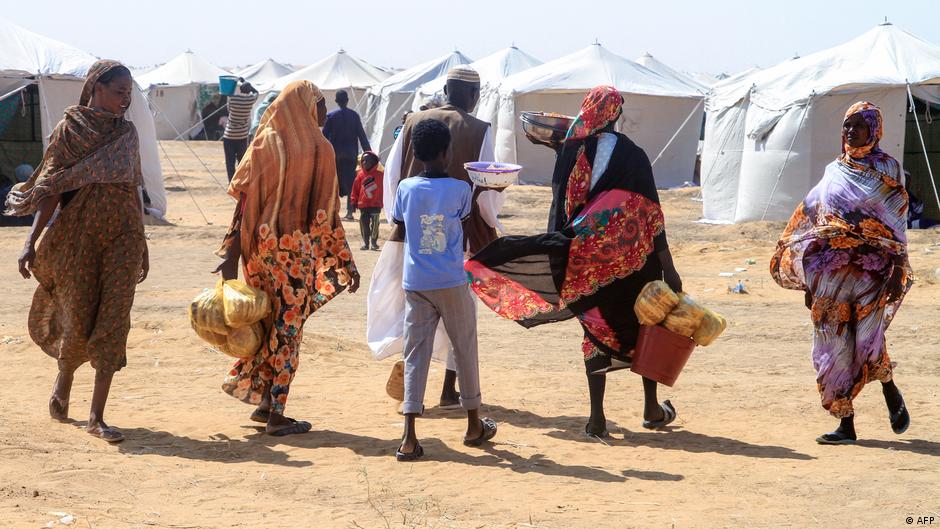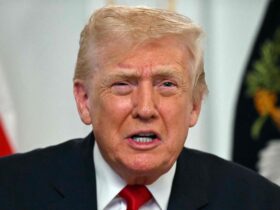On Thursday, the European Parliament had unusually strong words for the escalation of the war and humanitarian catastrophe in Sudan. Members of the European body passed a resolution stating that serious violations of international humanitarian law and human rights, committed by both the Rapid Support Forces (RSF) and the Sudanese Armed Forces (SAF), may constitute acts of genocide.
The organization also considered entering into a free trade agreement with the United Armed Emirates (UAE) over allegations that European weapons were being resold through Abu Dhabi to the paramilitary RSF. The UAE is widely considered to be the main supporter of the militias, a claim the Emirati government strongly denies.
After two and a half years of bitter fighting, as international attention turns to Sudan, how close are the warring parties to reaching an agreement?
Recent ceasefire proposals abandoned?
Civil war broke out in Sudan in mid-April 2023 amid a power struggle between RSF and SAF generals over the integration of paramilitary fighters into state forces. Diplomatic efforts to end the fighting have so far failed, but new momentum may be on the way.
Earlier this week, in response to increased international efforts, which included the participation of US President Donald Trump and mediators from the “Quad” – which includes representatives of the United States, Egypt, the United Arab Emirates and Saudi Arabia – the head of the RSF, General Mohammed Hamdan Dagalo, announced an “immediate cessation of hostilities” in the form of a “unilateral ceasefire”.
However, just a day later, the SAF reported that they repelled an RSF attack on an infantry base in West Kordofan.
Both sides also rejected a recent US-backed truce plan based on the Quad’s September resolution. It envisions a three-month humanitarian ceasefire, followed by a ceasefire and a political transition process leading to the establishment of a civilian-led government that will not involve any of the warring parties.
SAF General Abdel-Fattah Burhan responded in a video statement, saying the proposal was “unacceptable and the worst ever”. Without going into details, he also claimed that the Emiratis were adopted as a “talking point” in the resolution.
What is the role of the UAE in Sudan?
The United Arab Emirates is widely considered to be the RSF’s main supporter, although Abu Dhabi denies this. The UN expert panel and various human rights organizations have alleged that the RSF is receiving military supplies from the UAE. Evidence has repeatedly pointed to the RSF’s use of weapons and ammunition of Emirati origin. The UAE officially denies these claims.
Nevertheless, there is increasing diplomatic, political and public pressure on the UAE to stop its alleged support for the RSF.
“Without the UAE’s territorial cover and military support, the RSF would actually be under pressure to compromise and withdraw its weapons,” Sudanese military analyst Yasser Zeidan told DW.
This view is expressed by Amgad Farid Eltayeb, executive director of the Sudanese think tank Fiqr for Studies and Development. He agreed that the UAE’s central role should be considered in any efforts towards a permanent ceasefire. “Without holding the UAE accountable through public demonstrations, congressional pressure, sanctions or financial investigations, any RSF pledge risks remaining a tool of narrative rather than a commitment” [resulting in] Operational restraint,” he told DW.
Why do both sides keep fighting?
The ongoing civil war has pushed the resource-rich country to the brink of fresh division. While the paramilitary RSF controls most of Sudan’s West Darfur region and parts of the south, the SAF controls most of the centre, north and east of the country.
In March, the RSF and affiliated armed groups formed the Sudan Founding Alliance (TASIS) with the aim of forming a government. The SAF rejects recognition of the RSF as a legal entity, and both sides claim control of the entire country. In light of this, expert observers say it is unlikely that either side will back down any time soon.
“RSF Approval [latest ceasefire proposal] “It’s a strategic measure,” Lina Badri, a London-based Sudanese policy researcher, told DW. “This is an attempt to establish themselves as an entity that can govern, and create a sense of legitimacy, which has been their main goal ever since they developed their parallel government,” he said.
On the other hand, the SAF has repeatedly emphasized its role as a sovereign state actor fighting foreign-backed militias, Badri told DW, “for that reason they do not see the ceasefire or the political process as an opportunity to strengthen their legitimacy.”
Citizens are suffering the consequences
The RSF has recently come under increasing international and public scrutiny for serious atrocities it committed in Darfur’s regional capital al-Fashar in late October. Close-up satellite images indicate that RSF fighters went door-to-door in the city, which it had taken control of after an 18-month siege, killing civilians. Testimonials from civilians who managed to escape detailed widespread violence, weaponized starvation, and targeted sexual abuse.
The International Criminal Court (ICC) has since begun an investigation reported atrocities And said that such acts, if proven, could constitute war crimes and crimes against humanity.
RSF leader Hamdan Dagalo has said that only a few individuals were responsible for large-scale violence against civilians and that they are being held accountable. Analyst Badri said such a statement is in line with its broader strategic aspirations.
Meanwhile, rights organizations and the United Nations are expressing grave concerns for the thousands of civilians still held in Al-Fashar. Direct communication remains almost impossible, as the RSF strictly controls access to mobile services.
On Wednesday, Jan Sebastian Friedrich-Rust, executive director of the German section of the NGO Action Against Hunger, told DW from a rural community in Central Darfur, about 100 kilometers (62 miles) from al-Fashar, “One doctor with three health assistants takes care of a community of 25,000 people.” He said that about 200 children in the area are suffering from severe malnutrition i.e. life-threatening hunger.
“Although 30 million Sudanese depend on humanitarian aid, only one in ten can be reached, because humanitarian aid from Germany and other donor countries is not enough,” he told DW.
During the war, Sudan has been plunged into the world’s largest humanitarian and displacement crisis to date, according to the International Rescue Committee and other global bodies. About 14 million people are displaced in Sudan and neighboring countries. United Nations World Food Program (WFP) Estimate That at least 21 million people are affected by severe food insecurity and two cities, including El-Fashr, are in a state of famine. At least 49,800 deaths have been recorded since April 2023. Some humanitarian groups warned that the death toll could be much higher, at least more than 200,000.
Edited by: Maren Sass






Leave a Reply